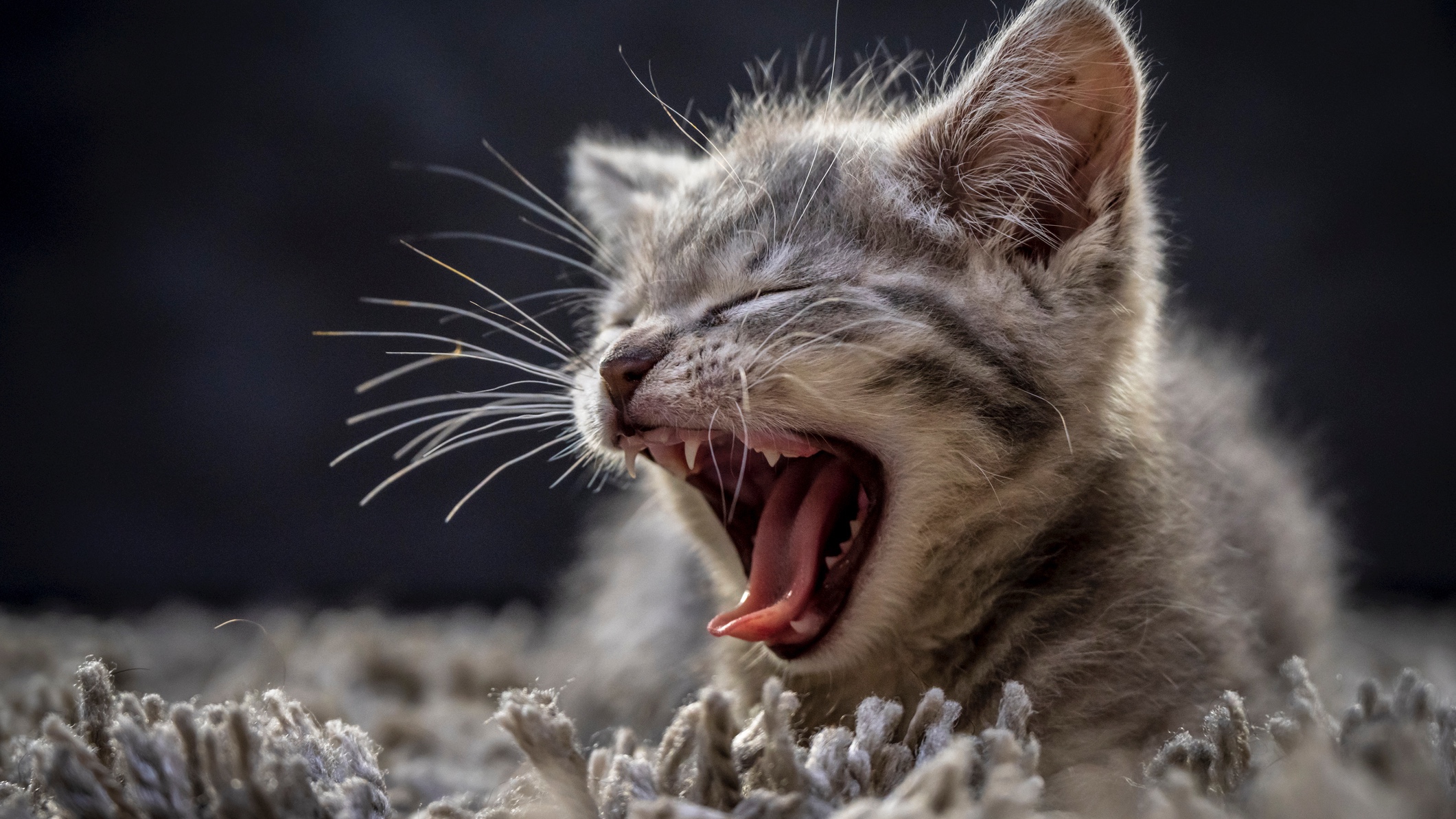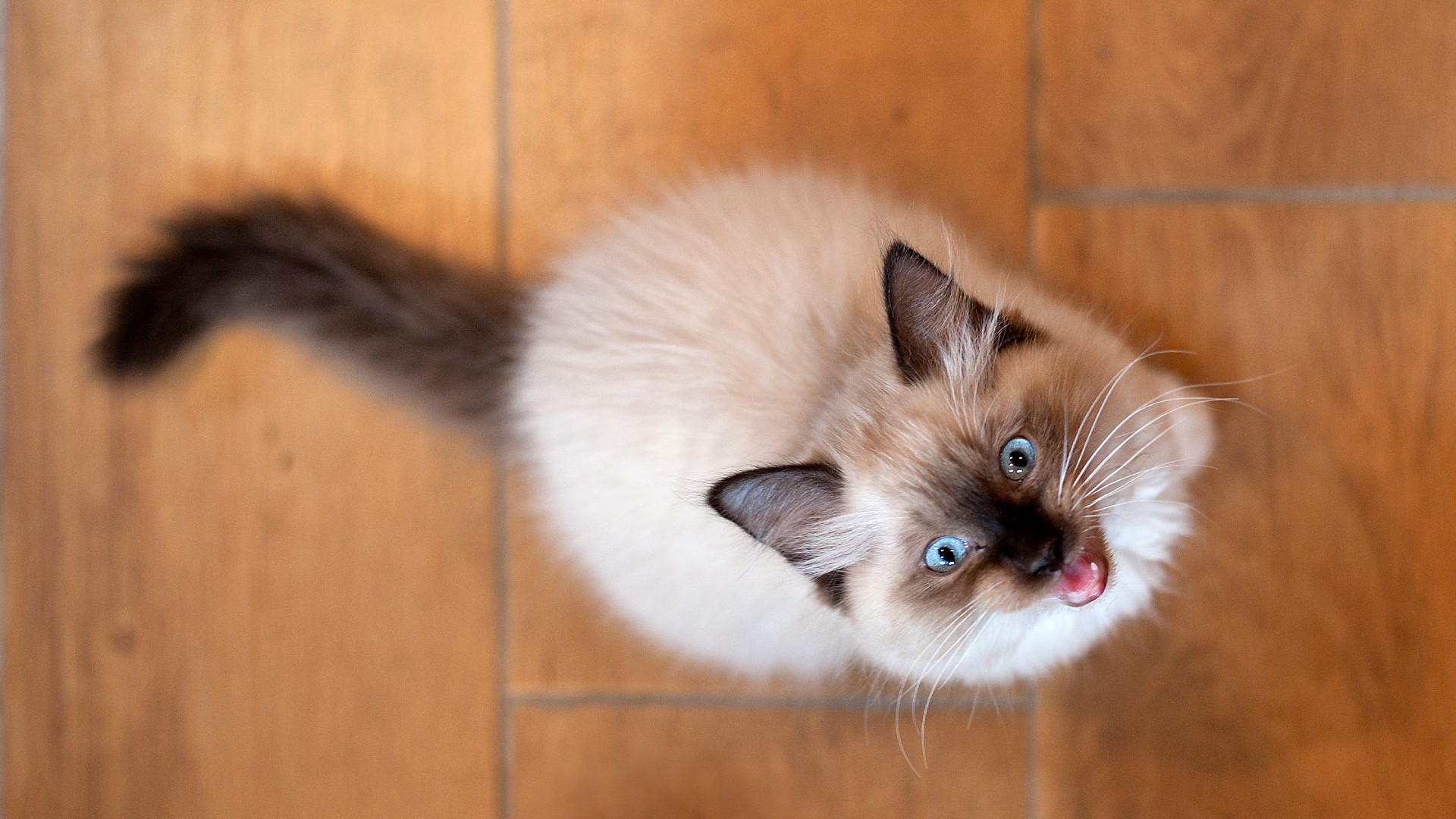Why is my kitten crying? Four common reasons for excessive meowing
Wondering; “why is my kitten crying?” It’s likely your cat is trying to tell you something

Get the best advice, tips and top tech for your beloved Pets
You are now subscribed
Your newsletter sign-up was successful
If you’re asking, “why is my kitten crying?”, you’re not alone. After all, you generally expect a cat to be vocal because it’s an essential form of communication but if it’s going on for too long a period (and if giving your furbaby the best kitten food for comfort isn’t working), then it could be an indication that something is wrong.
To find the root of the problem, we spoke to vet Dr Elizabeth Racine for advice. She was able to boil down the issue of a crying kitten to four common reasons and it’s possible to perform a few simple tests to either confirm or eliminate each one. “Too much crying is not only a nuisance, it can also mean that your cat is uncomfortable or in need of something,” she says.
So let’s see if any of these reasons can help explain why your kitten is crying.
Possible reasons why your kitten is crying
Don’t forget, your vet is your best resource to help you determine whether your kitten is crying too much and he or she can help you find and address the underlying cause of the problem.
1. Your kitten is craving attention
According to Dr Racine, most kittens cry because they are seeking attention from their owners. Indeed, a study published in the journal Behavioural Processes found that to be the case – it noted that feral cats indiscriminately growl or hiss at humans, dolls and dogs while domesticated cats meow only at humans because they’ve developed meowing as a method of direct communication.
“Kittens are active and highly curious creatures that are constantly on the go, and they want to be part of whatever you’re doing, too! ,” Dr Racine says. “As pet owners, we frequently reinforce this behavior by simply petting, talking to, or picking up our kittens when they cry. By giving our kittens this type of positive reinforcement, we teach them that crying is a great way to get our attention. Even negative attention, like yelling or scolding, is still attention and can inadvertently reinforce the crying behavior.”
You can check if a kitten is crying for attention by simply spending time with your young cat. Grab the best kitten toys to play with and see if the crying stops. Of course, this could subsequently encourage your kitten to cry but Dr Racine has a trick up her sleeve.
Get the best advice, tips and top tech for your beloved Pets
“If your kitten is still constantly crying for attention and being a nuisance, resist the urge to react – either positively or negatively – as this will only reinforce the behavior,” she says. “Instead, wait until your kitten is quiet and calm before you reward her with some cuddles for good behavior.”
2. Your kitten is desperate for food
Hunger is the second most common reason a kitten will cry. In a study published in the journal Current Biology, it was found that cats very quickly realize that a vocalization will solicit food from their human hosts, and this, the researchers say, exploits “sensory biases that humans have for providing care”.
To test if this is the reason for the crying, give your cat attention first and, if that doesn’t help, reach for the best kitten treats. You should also be absolutely certain that you are appropriately feeding your kitten by knowing which food is right for your cat and asking, “how often should I feed my kitten?”.
“If your kitten is crying for food, it is important to first make sure that you are feeding your kitten enough food for her current age and weight, and that you are feeding a kitten food that is complete and balanced to ensure she is getting all the nutrients she needs as she grows,” Dr Racine says. “If you’re unsure what or how much to feed, your veterinarian is a great resource to guide you. Your veterinarian can help you choose the best kitten diet and can also advise you on how many calories to feed per day to ensure your kitten is getting plenty of nutrients for growth.”
A word of warning though: try not to show a cat that crying for food is always effective. Excessive rewards can teach a kitten that begging for food works! “Ignore the behavior or redirect her on to another activity, such as playing with her favorite toy.,” Dr Racine says. “It can also help to use an automatic feeder to dispense measured portions of food at specific times of day so that you are no longer the source of the food and your kitten will be less likely to bother you for a snack.”
3. Your kitten is bored

If you’ve given your kitten a bit of attention and handed out some food and the crying continues, then you may just have a bored pet on your hands. In other words, your attention is not proving to be enough and your pet is exhibiting kitten behavior problems which are usually due to a lack of mental stimulation.
“Kittens need exercise and active playtime with you daily to keep them healthy and mentally stimulated. Kittens also need plenty of environmental enrichment – such as toys, the best cat scratching posts, climbing structures, hiding places, and other things to explore – to keep them active and entertained.
“If your kitten is crying due to boredom, providing more one-on-one play time with you and increasing her environmental enrichment should solve the problem,” Dr Racine says. For ideas on how to keep your kitten busy, learn how to play with a kitten, and check out the OSU Indoor Pet Initiative for great suggestions to keep your indoor cat from getting bored.

Dr. Elizabeth Racine is a small animal general practice vet covering all things pet health and wellness. Her special interests include veterinary behavior, nutrition, and internal medicine. As a freelance writer, Dr. Racine has written content for major companies in the industry such as the American Kennel Club, Merck Animal Health, Bayer PetBasics, Elanco, and CareCredit. In her free time, Dr. Racine enjoys playing trampoline dodgeball, hiking with her beagle Dasher, and spending time with her three mischievous cats.
4. Your kitten is in pain or discomfort
Maybe you’ve fed your kitten, lavished him or her with attention and provided an environment that would excite any feline into playing with enthusiasm and yet you’re still finding your kitten is crying. A less common, but no less important, cause of this is pain and discomfort. This could be as simple as a little one's new chompers pushing through, in which case a few of the best kitten teething toys may be all that's needed to resolve the crying. But it may be something else.
“Your kitten may be crying because she doesn’t feel well, she is in pain, or she’s simply uncomfortable in some way,” says Dr Racine “If you suspect your kitten may be in pain, it is important to take her to the veterinarian right away. Your veterinarian will perform a full physical examination, and may recommend some additional testing such as x-rays to look for injuries or blood work to rule out certain illnesses.”
Once the cause of your kitten’s discomfort has been diagnosed, your veterinarian can prescribe pain medications and other treatments to help get her back to her old self again. Never give your kitten over the counter pain medications or any medication not specifically prescribed for her, though Many of these medications can be toxic to pets, especially to tiny kittens! Always consult your vet before giving your pets any new medications, supplements, or home remedies.
Looking for more answers to some of the most frequently asked pet parent questions? Why is my kitten drinking a lot of water has everything you need to know about how much fluid your little one should be drinking and why they might be consuming more.
Dr. Elizabeth Racine is a small animal general practice vet covering all things pet health and wellness. Her special interests include veterinary behavior, nutrition, and internal medicine.
As a freelance writer, Dr. Racine has written content for major companies in the industry such as the American Kennel Club, Merck Animal Health, Bayer PetBasics, Elanco, and CareCredit. In her free time, Dr. Racine enjoys playing trampoline dodgeball, hiking with her beagle Dasher, and spending time with her three mischievous cats.
